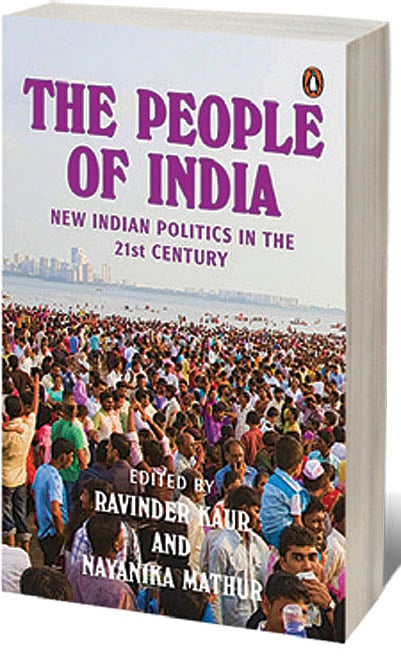A Lexicon for New India

EDITED BY EUROPE-BASED Indian-origin academics Ravinder Kaur and Nayanika Mathur, People of India: The New Indian Politics in the 21st Century is dedicated to the people of the country. Which is apt for a book released, as it was, shortly after India entered the 75th year of its freedom, and which offers a collection of essays by fine scholars of South Asia who have examined various features of it.
These scholars, who include the editors, focus on what is often called ‘popular politics’ in the ‘new India’, the hallmark of which is the re-emergence of a dominant party at the national level even as the opposition remains considerably weakened. As the reader progresses through insightful articles that make up this introduction to Indian politics, it becomes clear that the emphasis is on street protests, memories that endure and a certain kind of informal politics that has begun to occupy our mind space.
Kaur, over the past several years, has earned a position in India and elsewhere as an astute commentator of Indian politics and trends in nationalism. Her 2020 work, Brand New Nation: Capitalist Dreams and Nationalist Designs in Twenty-First-Century India, dwells on the correlations between political and economic changes of the past several decades. Kaur, Associate Professor of Modern South Asian Studies at the University of Copenhagen, Denmark, tells Open about this anthology, “Indian politics is usually analysed through the prism of electoral politics, an approach that focuses on conflicts and contestations between political parties. We set out to unpack the informal sphere of politics, the making and unmaking of ever-new political subjects that signals the kind of cultural shifts underway in the social landspace.” Mathur, her co-editor, is Associate Professor of Anthropology and Director of the South Asian Studies Programme at the University of Oxford, and an author. She is also an expert on climate change and the Indian Himalayas.
Imran Khan: Pakistan’s Prisoner
27 Feb 2026 - Vol 04 | Issue 60
The descent and despair of Imran Khan
Following a foreword by Delhi School of Economics professor Satish Deshpande and a stellar introduction by Kaur and Mathur to help the reader comprehend nuances of the ‘new Indian politics’, the book starts off with a write-up by Suraj Yengde who dwells on the multi-faceted personality of BR Ambedkar. He dissects why the man is a “desired son-in-law of the Brahmins who desperately want to put their stamp on his genius”. Yengde writes, “Ambedkar was Brahminised by being made a part of India’s greatness and presented as an exemplary patriot. And he was Dalitised at the same time to ensure that his place as an untouchable remained in the archive of Indian history, while he received no further credit.”
Oxford University professor Faisal Devji, one of the world’s foremost scholars on Gandhi, has contributed a write-up on the Mahatma. Devji puts forth a deeply enriching argument about Gandhi’s ideas on paternity and politics. He delves into Gandhi’s works and conversations to offer us stimulating analyses of why Gandhi chose Jawaharlal Nehru over Vallabhbhai Patel, the one who was more intellectually close to him than the former; and why he had no time for entrenched religious models of renunciation, where the sacrifice of the son is more important than that of the father. Devji also argues why Gandhi at times is a nonconformist like no other and why he ended up making the disadvantaged—like children and slaves—the model of moral life. Also profound is his take on the ties that link Gandhi and his assassin Nathuram Godse.
Stanford University anthropologist Thomas Blom Hansen offers us a few original arguments about the idea of a political activist and the attributes of the new Indian. Others who have contributed to this eclectic mix of essays include Kajri Jain, Gyan Prakash, Srirupa Roy, Ornit Shani, Lawrence Cohen, Navyug Gill, Sharika Thiranagama, Nusrat S Chowdhury, Aradhana Sharma and Mrinalini Sinha.
This is a superlative collection that tracks the reshaping of the world’s largest democracy.

